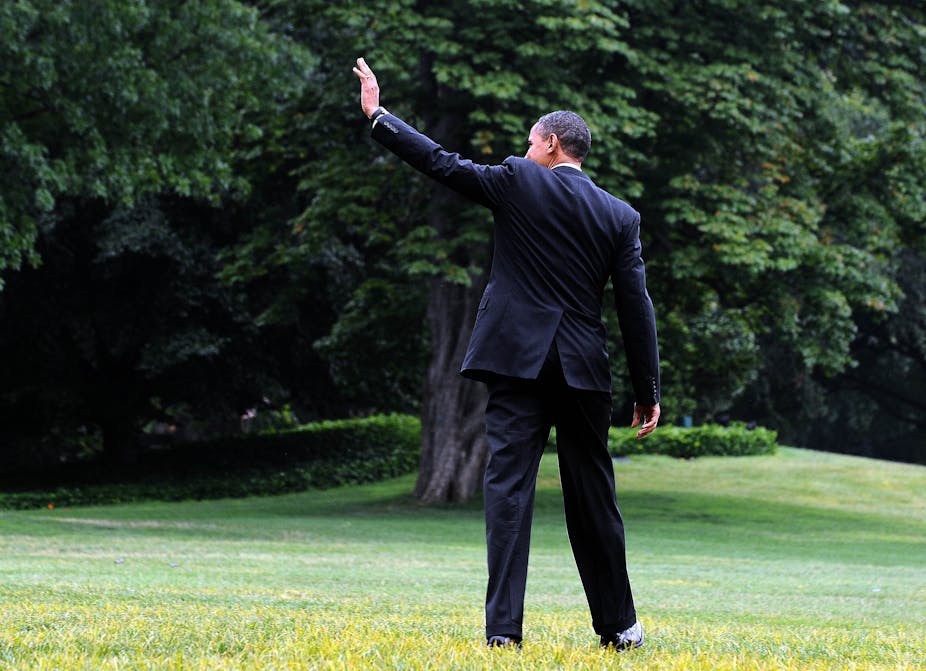Despite the apparent disgust of many Americans and the contempt held by many outside observers, US politics is supposed to look this way – at least sometimes.
The widely diagnosed dysfunction of the recent debt negotiations is misplaced. The US Constitution makes the passing of law hard. The political system it defines is based on a scepticism about human beings.
James Madison reminds us in his essay The Federalist #51 that “If men were angels, no government would be necessary. If angels were to govern men, neither external nor internal controls on government would be necessary. In framing a government which is to be administered by men over men, the great difficulty lies in this: you must first enable the government to control the governed; and in the next place oblige it to control itself.”
What we saw this week was that government controlling itself – and a small portion of that government being controlled by the people. It was messy. It appalled assorted foreign cosmopolitans. It shook the confidence of global business. It surely worried America’s Chinese creditors. But it was part of the constitutional order, not separate from it.
The Constitution does not negate ideological debate – it bounds it. It provides incentives to factions, parties, majorities and minorities to compete with one another without ever providing any one with hegemony. What is recurrent in American history was especially so this week. The debt-ceiling crisis was merely a proxy for a deeper ideological struggle over the appropriate role of government in human affairs.
This question has been essentially settled in the rest of the west. Government in Europe and Australia is technocratic before it is ideological: “We can run things more effectively than them. We can make government work better.”
In the US, the legitimacy of governmental action enjoys no such consensus. There are two sides in American politics – and various divisions within these – that differ fundamentally on how far government can compel progress.
Democrats afford government a large role in improving things; Republicans do not. The Constitution invites them to struggle to enshrine their respective approaches in a working majority. Such majorities are rare and transitory – and it became apparent this week that neither side enjoys one, hence the fraught machinations.
It is important we remember this context. The US economy is run not by bureaucrats or technocrats – a lá Brussels (also mired in a debt crisis) and Beijing – but by highly competitive, electorally-motivated, ideologically-inspired politicians. These men and women viewed the debt-ceiling crisis not through the prism of global commerce but the lens of their own local concerns – as the Constitution obliges them to – and of partisan advantage, born of ideological conviction.
One last word on this ignored context. The system which produced such a messy compromise – a betrayal by Obama if you are a Democrat; a gutting of the defense budget if you are a Republican – is the same one that framed the rise of the US from an insignificant trading outpost 235 years ago to the current economic axis on which the world turns – the greatest economic and military power in history.
Its political system – so subject to democratic pressures – can hardly be divorced from that extraordinary success story.
Now, what does all this spell for Obama’s electoral fortunes? Despite his apparent canonization in 2009 his power depends on re-election in November 2012. Arguments that he is doomed are as strong as they are legion. On balance, I think they carry more weight than those arguing he is still electorally viable.
James Fallows, for example, had to accept that Obama was now more “captured pawn” than multi-dimensional chess master. Federal spending will be cut with no reciprocal obligation to raise taxes. This is a big win for a Republican party that controls only one house (the weakest) of Congress.
Despite the White House and Senate being Democrat-held, a small (if fervent) minority within the GOP – the Tea Party – advanced its agenda at the expense of the president’s party. Democrats are unlikely to forget this next year. Their devotion to Obama will surely abate?
Would a default have spelt the end of Obama? I don’t think. Had the US defaulted, Obama could at least have spread the blame for a double-dip recession onto Republicans. Now, he must carry the can himself for a huge stimulus package that has produced no jobs and no apparent recovery. Unemployment seems stuck at about 9 per cent no matter how much Keynesianism Obama throws at it.
However, as the protracted course of negotiations suggest, no side can claim a monopoly on victory. Obama will run hard on having stood firm against cuts in Medicare and Medicaid – only 3 per cent of savings can come from this social spending. He will tout implicitly, but tout nonetheless, that most of the cuts will come from the defence budget (some 50 per cent of overall savings).
He can potentially pincer national security Republicans: “I am the man that killed Osama bi Laden and made defence spending work more effectively.”
The games afoot. We are in the opening phases of the most consequential, ideological and fascinating presidential races since 1860.
America appeared doomed then – it recovered. And behind both campaigns, and all before and after, was the US Constitution, forcing politicians to compete for power lest they become too comfortable in its exercise.

